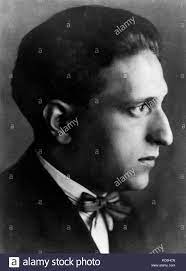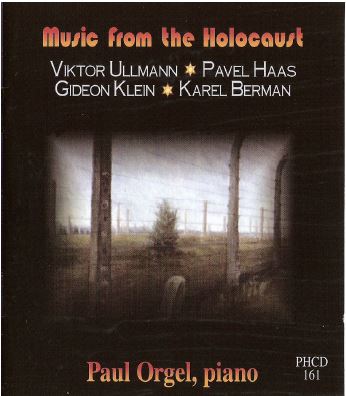
Haas, Pavel
Pavel Haas (1899-1944)was born into a middle-class family in Brno on June 21,1899. By the time he was fifteen, he had composed an orchestral overture along with several songs and works for solo piano. He enrolled in the Brno Conservatory and in 1921-22 studied in the composition class of Leos Janacek. Haas was possibly the most talented of Janacek’s disciples and was able to absorb the older masters mode of compositional construction while developing his own means of musical expression.
With the Nazi conquest, Haas formally applied for a divorce from his non-Jewish spouse to protect her and his young daughter. At that point the family was also looking after the son of Haass brother Hugo, who had fled the country. Hugo, an actor, would ultimately have a career in the Hollywood film industry. Haas was deported to Terezin on December 2, 1941, one of the first musicians of stature to arrive there. The separation from his family along with the terrible conditions of camp life brought him to a state of severe depression. It was only through the efforts of Gideon Klein that he eventually began to compose again. According to Eliska Kleinova, Gideons sister: When Pavel Haas was deported to Terezin, he would not have a thing to do with music in the ghetto. He was miserable. His health was bad. Haas had eye problems. He missed his wife and daughter terribly. During the Nazi occupation he and his wife divorced. His wife was not Jewish. The divorce saved the wife and child from the transports. All this was too much for Haas. Gideon had a deep respect for Haass creativity. He gathered scraps of paper. You know paper was very scarce in Terezin, and drew the music staves like music manuscript paper. In giving the paper to Haas, Gideon urged, almost commanded, him to compose again. He spoke of artistic responsibility to oneself, ones muse, and to all of us in the ghetto.
